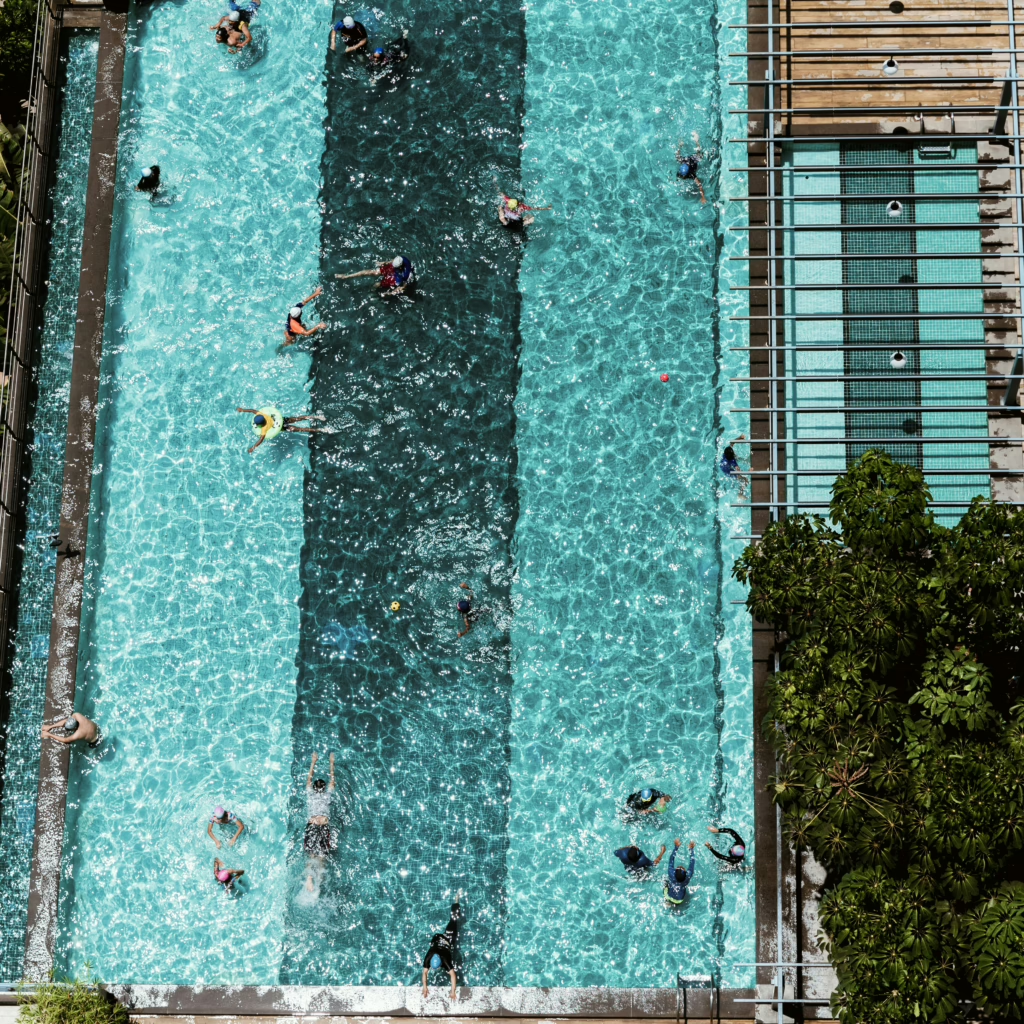San Diego homeowners favor saltwater pools for their gentler swimming experience and reduced reliance on harsh chemicals. However, maintaining a saltwater pool presents unique challenges, particularly in a coastal climate where corrosion and scale buildup are more frequent.
Preventative care is essential to keep your saltwater pool running smoothly, avoiding costly repairs and ensuring longevity. If you’re searching for saltwater pool repair near me, Cabana Pools offers expert maintenance and repair services tailored to San Diego’s unique conditions.
Common Saltwater Pool Issues
Understanding the common problems associated with saltwater pools can help you take proactive steps to prevent them.
Corrosion of Metal Components
While saltwater is less irritating than traditional chlorine, it is still corrosive to metal components. Over time, exposure can lead to rusting of ladders, railings, light fixtures, and other pool parts. In San Diego’s coastal environment, where salt levels in the air are naturally higher, corrosion can occur even faster if not addressed.
Scale Buildup on Surfaces and Equipment
San Diego’s hard water, combined with the minerals in salt, can cause scale buildup on pool surfaces, pipes, and equipment. This buildup affects the pool’s appearance and reduces the efficiency of components like the salt cell and pump, leading to higher energy usage and potential damage.
Malfunctioning Salt Cells or Chlorinators
The salt cell is the heart of your saltwater pool system, converting salt into chlorine to keep the water sanitized. Over time, calcium deposits can clog the cell or wear it out due to improper maintenance. A malfunctioning salt cell produces low chlorine levels, making your pool unsafe for swimming and prone to algae growth.
Preventative Maintenance Tips
Regular maintenance is the best way to avoid these issues and keep your saltwater pool in optimal condition.
Testing and Balancing Salt Levels Regularly
Salt levels that are too high or too low can affect your pool’s performance and damage equipment. Use a saltwater test kit to check levels regularly, ensuring they fall within the manufacturer’s recommended range (typically 2,500–3,500 ppm). Proper salt balance minimizes corrosion and ensures effective chlorine production.
Cleaning the Salt Cell
A clean salt cell is essential for efficient chlorine production. Over time, calcium deposits can accumulate on the cell’s plates, reducing its ability to generate chlorine. Inspect the cell every three months and clean it as needed using a mild acid solution. Avoid over-cleaning, as this can wear down the plates prematurely.
Inspecting Metal Components
Check all metal parts of your pool, including ladders, handrails, and light fixtures, for signs of rust or corrosion. Applying a protective sealant to exposed metal can help reduce corrosion. Replace significantly rusted parts promptly to prevent further damage.
Monitoring Water Chemistry to Prevent Scale Buildup
Proper water chemistry is critical for preventing scale and ensuring the longevity of your pool equipment. Test your water weekly for pH, alkalinity, and calcium hardness, adjusting as necessary. Balanced water reduces the likelihood of mineral deposits forming on your pool’s surfaces and equipment.
Using Specialized Saltwater Pool Products
Certain products, such as saltwater-friendly algaecides and scale inhibitors, are designed to protect your pool from common saltwater issues. Incorporating these into your maintenance routine can help prevent algae growth and minimize scaling, making maintenance more manageable.
Benefits of Professional Inspections
While routine DIY maintenance is essential for maintaining your saltwater pool, professional inspections provide a deeper level of expertise and insight that ensures your pool remains in optimal condition.
Identifying Hidden Issues Early
Professionals can detect subtle problems that might go unnoticed during routine maintenance. For instance, a salt cell may appear to function normally but could have internal scaling or wear reducing its efficiency. Similarly, minor plumbing leaks might not immediately affect water flow but can lead to more significant problems, such as structural damage or increased salt loss.
Ensuring Proper Functioning of Complex Systems
Saltwater pools rely on intricate systems, including the salt chlorinator, pump, and filtration system, to maintain clean and balanced water. Professional inspections ensure all parts work harmoniously, preventing strain on the system and avoiding potential malfunctions.
Extending the Lifespan of Pool Equipment
Routine checks by professionals can prevent wear and tear on critical components like the pump, heat exchanger, and salt cell. By addressing issues early, professional inspections reduce the need for frequent replacements, saving money and extending the life of your pool’s infrastructure.
Peace of Mind and Compliance
Professional inspections ensure your pool operates safely and complies with local regulations and safety standards. This is particularly important for electrical installations or modifications, protecting you from potential liabilities or fines.
Final Thoughts
Proper maintenance is key to preventing common saltwater pool issues like corrosion, scale buildup, and equipment malfunctions. Regularly testing salt levels, cleaning the salt cell, and inspecting metal components can keep your pool in top condition and avoid unnecessary repairs.
For the best results, partner with a professional service like Cabana Pools. If you’re looking for saltwater pool repair near me, our team specializes in maintaining and repairing saltwater pools in San Diego’s unique climate. Contact us today to schedule an inspection or maintenance service and ensure your pool remains a relaxing retreat for years to come!



